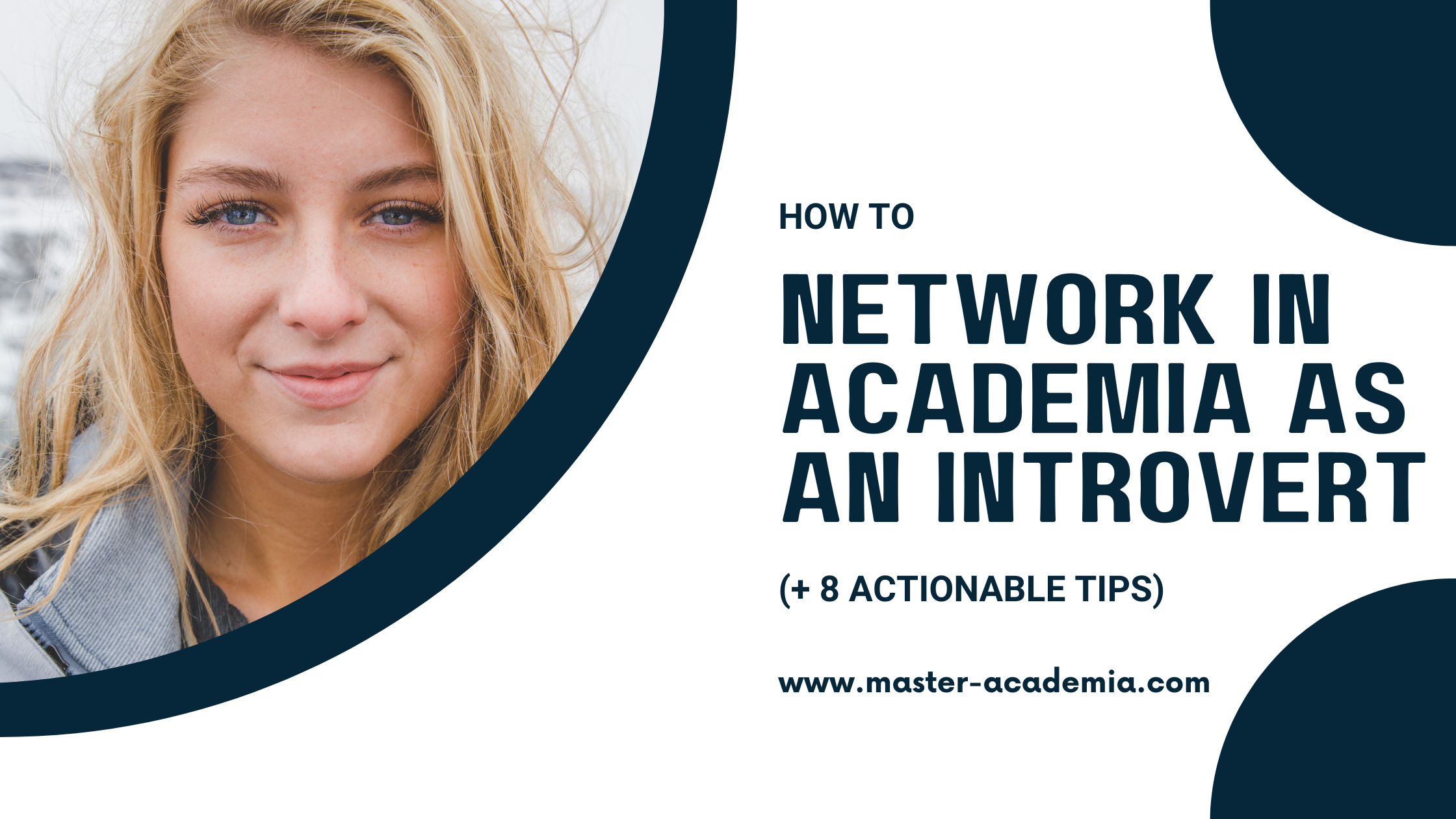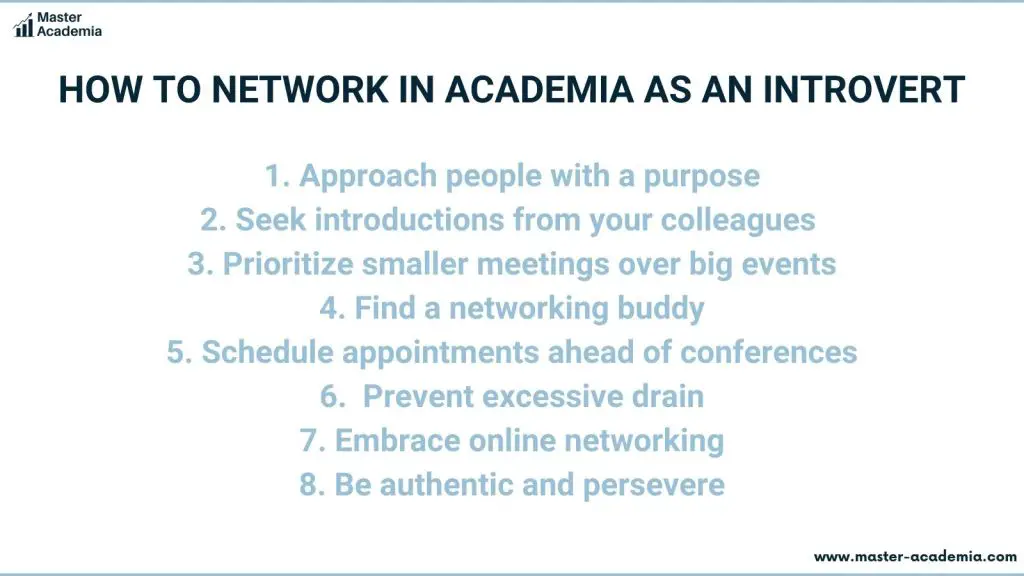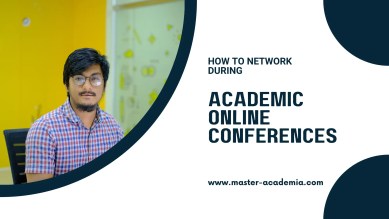
Networking is a vital aspect of academic success, but it can be a source of concern for introverted individuals. Rather than trying to conform to conventional networking expectations, it’s essential to embrace your introversion and adapt your strategies accordingly. Learn how, including eight actionable tips for introverts when it comes to networking in academia.
Contents
- The importance of networking in academia
- The importance of finding your unique way of networking as an introvert in academia
- Academic networking for introverts tip #1: Approach people with a purpose
- Academic networking for introverts tip #2: Seek introductions from your colleagues
- Academic networking for introverts tip #3: Prioritize smaller meetings over big events
- Academic networking for introverts tip #4: Find a networking buddy
- Academic networking for introverts tip #4: Schedule appointments ahead of conferences
- Academic networking for introverts tip #5: Prepare a self-introduction in advance
- Academic networking for introverts tip #6: Prevent excessive drain
- Academic networking for introverts tip #7: Embrace online networking
- Academic networking for introverts tip #8: Be authentic and persevere
The importance of networking in academia
Networking can create a lot of stress, especially for early career researchers like PhD students. They know they should do it to make valuable connections in academia.
The power of networking in academia is often underestimated. There is still this idea that all academic success is based solely on merit. However, in reality, those who have spent more time in academia have plenty of stories about how knowing the right people is actually extremely influential.
Strong academic networks help you disseminate your work, lay the foundation for future collaborations, and increase your future employment opportunities.
The sad thing is that networking in academia is often not taught as part of PhD programs, and many supervisors don’t coach PhD students on how to do it effectively.
Furthermore, those who identify as introverted may shy away from randomly approaching people, such as to network during academic conferences.
If you are more of an introverted type, it can seem scary and challenging. Luckily, there are actionable tips that make networking for introverted PhD students much more feasible.
You may also like: Strong academic networks through shared activities
The importance of finding your unique way of networking as an introvert in academia
Working in academia is already stressful enough. There’s no need to increase stress and pressure by trying to network like an extrovert.
The most important message is: if you’re introverted, don’t try to change who you are. Instead, be confident in yourself and make strategic choices to find networking methods that align with your character and don’t overwhelm you.
Any other approach will simply be unsustainable, or you may end up avoiding networking altogether, which isn’t beneficial considering the power of networking in academia.
Fortunately, you’re not alone. While it may seem at conferences or department meetings that everyone is extroverted, that’s not the case. Extroverts just tend to be more visible as they may have fewer hesitations when approaching people and speaking up.
Academia actually has many introverts. One reason is that academic jobs often align well with the preferences of introverts: independent work, deep thoughts, and meaningful discussions. This can be advantageous in developing networking strategies that suit you!
Academic networking for introverts tip #1: Approach people with a purpose
Simply approaching someone, like during a conference’s coffee break, can make introverts feel uncomfortable. Therefore, the first tip for introverts is to always approach people with a clear purpose.
This could involve asking a concrete question about someone’s publication, seeking clarification on a topic, or inviting someone to participate in an event that you are organizing.
While this approach requires some preparation, the result is often a more meaningful conversation. When you approach someone with a purpose, rather than randomly engaging in small talk at a coffee break, people are more likely to remember you and the interaction becomes more memorable.
Academic networking for introverts tip #2: Seek introductions from your colleagues
Networking doesn’t have to be a solitary endeavor. Instead, you should leverage your existing connections to facilitate introductions. It’s much easier to have someone introduce you to someone they already know. For introverts, this approach serves as a great ice breaker and removes the initial hurdle of approaching someone alone.
For PhD students, supervisors can play a significant role in connecting you with others. Additionally, you should make use of your colleagues and peers. Nowadays, platforms like LinkedIn make it easy to identify common connections with someone you wish to connect with. Reach out to one of these mutual connections and ask them to make the introduction. This increases the likelihood of receiving a positive response.
By utilizing your existing network and seeking introductions, networking becomes more accessible and less daunting, particularly for introverts.
Academic networking for introverts tip #3: Prioritize smaller meetings over big events
Understanding your own preferences, it is advisable to prioritize attending events or seminars that are on a smaller scale. These intimate gatherings allow for more meaningful interactions with a few individuals, fostering deeper connections.
For example, consider participating in a smaller seminar that spans a couple of days, providing an opportunity to engage in in-depth discussions on specific topics with a select group of participants.
As a PhD student, you can also explore attending small, selective summer schools, which can be highly rewarding. Not only can you forge lifelong friendships, but you are also likely to encounter familiar faces at larger conferences in the future. This familiarity helps alleviate conference anxiety and creates a sense of belonging within the academic community.

Academic networking for introverts tip #4: Find a networking buddy
A valuable strategy for introverts is to team up with another individual who also wants to network. By partnering with someone, you can provide mutual support and enhance your networking efforts.
You can leverage your individual networks to introduce each other to relevant contacts. Additionally, you can collaboratively plan strategic approaches for being present in specific spaces and connecting with targeted individuals.
If you’re organizing an event or activity, working together with a networking buddy makes it easier to create meaningful interactions and share the workload. Networking becomes more manageable and enjoyable when you have someone to navigate the process with.
Academic networking for introverts tip #4: Schedule appointments ahead of conferences
When it comes to networking at conferences, it’s important to set realistic expectations for yourself, especially if it makes you anxious. One effective strategy is to proactively schedule a few appointments in advance.
Start by examining the list of speakers in your conference session. Identify someone whose research aligns closely with yours and whom you would like to meet. Take the initiative to send them an email expressing your interest in their work and mentioning that you both will be presenting in the same panel. Suggest meeting for a cup of coffee or lunch during the conference and propose a specific time and place for the meeting.
By arranging these appointments ahead of time, you can engage in valuable networking while alleviating the pressure of approaching people randomly.
Academic networking for introverts tip #5: Prepare a self-introduction in advance
For introverts, networking can be challenging, leading to hesitation and potential discomfort when engaging with others. However, having a few well-crafted sentences about yourself and your work can significantly reduce this hesitation and alleviate the burden of networking.
Preparing a concise and compelling self-introduction not only helps introverts overcome the fear of starting conversations but also ensures clarity and coherence in their communication.
This preparation is particularly beneficial during conference presentation introductions and other academic networking situations where the fear of babbling or being unclear can be prevalent.
Academic networking for introverts tip #6: Prevent excessive drain
It is crucial not to overexert yourself when engaging in networking activities, particularly at conferences. Pushing beyond your limits can quickly lead to exhaustion and drain your energy, potentially impacting your ability to network effectively.
Identify gaps in the conference schedule or consider skipping a few sessions to create moments of respite. You don’t have to be constantly surrounded by people throughout the day. Take breaks that suit your needs, such as going for a solo walk during lunchtime or returning to your hotel for a brief period to rest or engage in activities that recharge you.
Focus on building meaningful connections with a few individuals rather than spreading yourself too thin across numerous interactions.
Academic networking for introverts tip #7: Embrace online networking
Engaging in online networking can be a beneficial approach for introverts, providing a sense of control, calmness, and the ability to network from a quiet environment, away from the potential overwhelm of in-person interactions.
Online networking offers a range of opportunities, from networking during virtual conferences to initiating connections through cold-emailing professors whose work resonates with you.
While it is important to supplement online networking with in-person interactions for building strong networks, it serves as a valuable foundation and stepping stone for introverts.
Academic networking for introverts tip #8: Be authentic and persevere
Creating a strong network in academia requires time and there is no universal formula for success. As an introvert, it’s important to embrace and feel at ease with your own nature. Trust that you will discover your own unique path and excel in forming deep, meaningful connections through thoughtful interactions and insightful contributions.
Perseverance is crucial, particularly for introverts who may prefer a more deliberate and reflective approach to networking. It takes time to cultivate valuable relationships that extend beyond surface-level connections. However, the rewards of building genuine connections are often more significant and fulfilling.
Remember to have confidence in yourself and your abilities.



